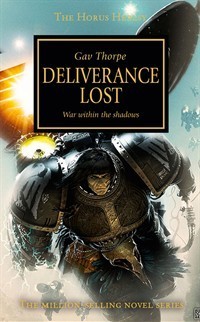The Big Mo
I have been a terrible blogger of late, so it is with profuse apologies for my recent absence that I must begin. This is due to a number of reasons, none of which are terribly interesting, but revolve around work, a long holiday decorating and gardening with my girlfriend, and general slackness…
Yet I also have a good reason for my tardiness in posting a new article, which is the subject of this post: momentum.
Being a full-time writer is just that – writing all day, five or six days a week. It is a luxury most folks cannot enjoy, what with having day jobs and whatnot to fill up their time. It does come with a downside though, and that is the matter of sustaining the workflow. For some writers workflow is simply about what commissioned work they have in the pipeline and as any freelancer will tell you, there is rarely such a thing as too much work. However, with lots of work to do, one has to be careful to pace oneself properly or risk burning out. I am in the fortunate position of having plenty of work to do, and quite a lot lined up for the future. This schedule is somewhat compromised by an extended holiday I am planning later in the year, which will eat up the best part of a month and a considerable chunk of my finances, so in a way I am 'front-loading' my work for the year to ensure I have both time and money for my New Zealand trip.
Head Space and Typing Time
In order to ensure that I am not caught short on either the time or money front, I have recently begun to plan my work in a bit more detail than before, using a spreadsheet. One important part of the scheduling has been to include time for 'planning' – coming up with a writing synopses for future projects. Despite this, it is very hard some times to concentrate on the work at hand knowing that an upcoming project hasn't been properly planned yet, and the temptation is to spend a little time on that now rather than later.
To counteract that, I have been making sure that my 'writing' time of late is focussed solely on typing time – actually sitting at a keyboard and writing words in the novel. I have a daily target to reach, calculated quite easily by dividing the amount left to be written by the number of days left to write it.
So far, so straightforward.

Corax about to 'Bring It'
Issues have come from taking a break at the halfway point of my latest novel. Quite a long break – over a week – in which I have not been thinking about writing at all. Getting back on the horse and picking up where I left off has taken a few days, which has obviously impacted on the schedule. So it is that for the past week and a half I have been avoiding any and all distractions – like blog posts – in order to get back up to speed on Deliverance Lost. It has been especially tricky with this project, my first Horus Heresy novel, because it has quite an involved plot and has to cover a lot of ground in the space available. Word count wise it is still going nicely, but my worry is that the 'dawdling' I've done in recent days might well show through in slow narrative.
I am resisting the urge to go back and edit it already. I have a principle that the first draft gets written without too much re-reading, otherwise I could end up revising the same few thousand words over and over and never finish. This is a problem I hear from writers who are just starting out.
Keep on Truckin'
When I get into the groove, the writing comes smoothly. Thankfully I am back in that happy place with the novel. For those who are still learning about their own process, it might be worth bearing in mind the importance of momentum. Remember that there will be time to re-write and revise later – if you get the first draft finished. If something occurs to me – a scene that should be inserted or a lingering doubt about something I have written previously, I insert a note into the manuscript [like this]. This means that I don't interrupt my general flow by going back and making the changes there and then, but ensures that when I do my first read-through, I won't forget what it was that had occurred to me.
I may even make such a note in the section I am currently writing, if I get a little stuck but want to carry on. For example, you may want to end a chapter on a pithy line of dialogue, or open with an awesome description of the setting, but the words aren't coming cleanly at the time. [Write a note] about it and get on with the narrative, coming back to the problem sentences later on, maybe even leaving them until the second draft. There is nothing worse than letting a line or two bog down your work for an hour or more, when whatever you come up with probably won't survive the first rewrite anyway.
Always bear in mind that your first draft is rough. There will be typos, spelling errors and some bad prose. Do not fret about it, but make sure you get the narrative finished. When all the words are there, and the story is complete, then you can concentrate on making the delivery as polished as possible.
P.S. The tagline on the cover 'War within the shadows' is a cutnpaste, not the final one…











